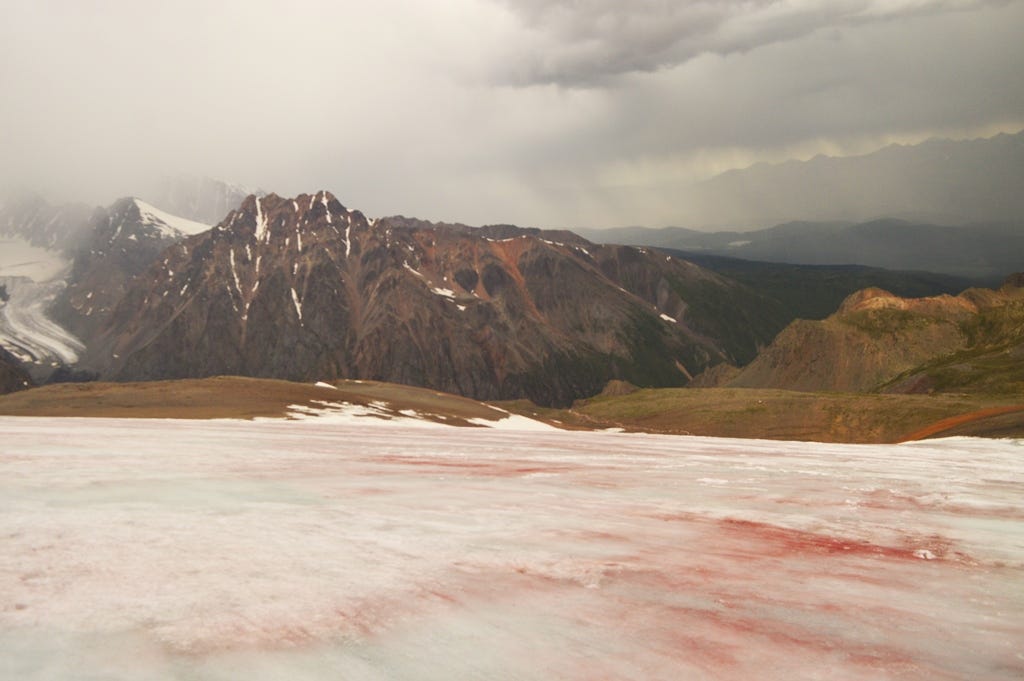Algae turned the Altai glacier red. It can speed up its melting
During a recent expedition, scientists studying the Aktru glacier group in the Altai Mountains discovered massive algae bloom, which turned the ice pink and red.
It’s terrible news for the environment since algal blooms reduce surface reflectivity and could accelerate the melting of the glacier. The glaciers of the Aktru group are rapidly shrinking. In particular, the Left Aktru glacier has lost over 25 per cent of its mass in 60 years.
According to Alexander Erofeev from Tomsk University, scientists monitor the accumulation of red algae on glaciers yearly. Still, they haven’t observed such a mass phenomenon over the past ten years.
The probable culprits are Chlamydomonas nivalis algae that can exist at low temperatures. They secrete a red pigment that allows them to survive. The reason may be the substantial snow that fell in the Altai mountains last winter and remained until the algae bloom period.
Glacier degradation is not the only environmental problem facing Russia. Last year I wrote about the death of tens of thousands of bees in the country.
Elia Kabanov is a science writer covering the past, present and future of technology (@metkere)
Photo and video: Tomsk University.




